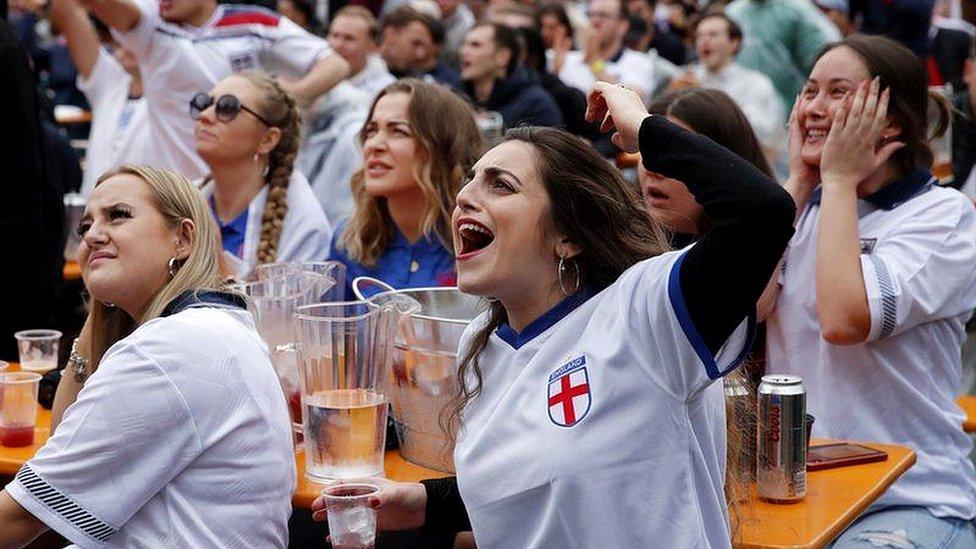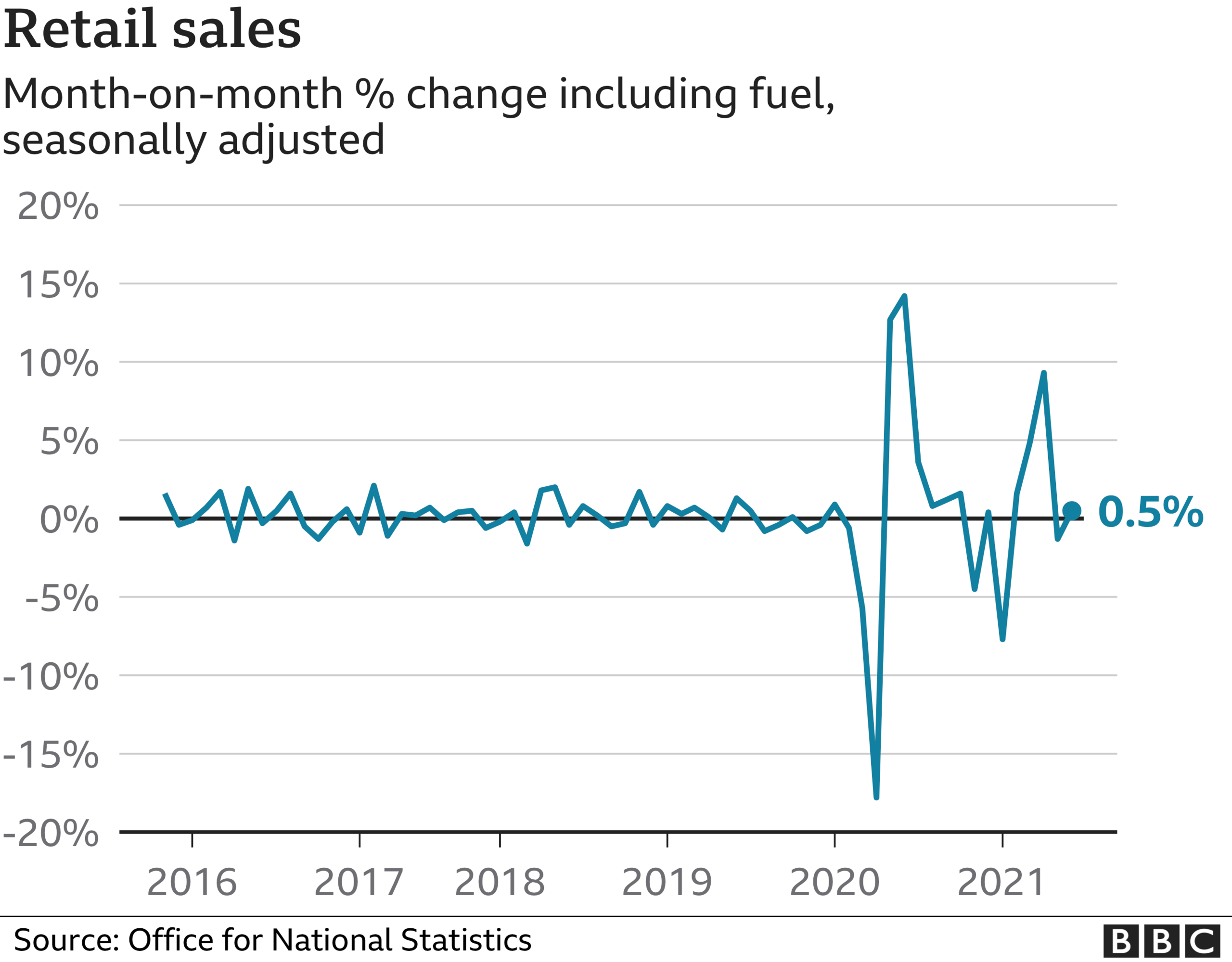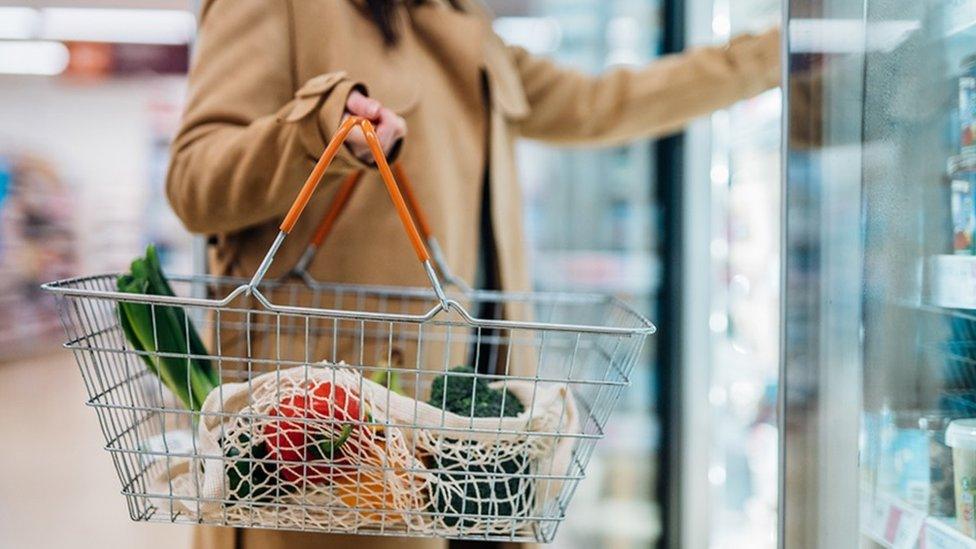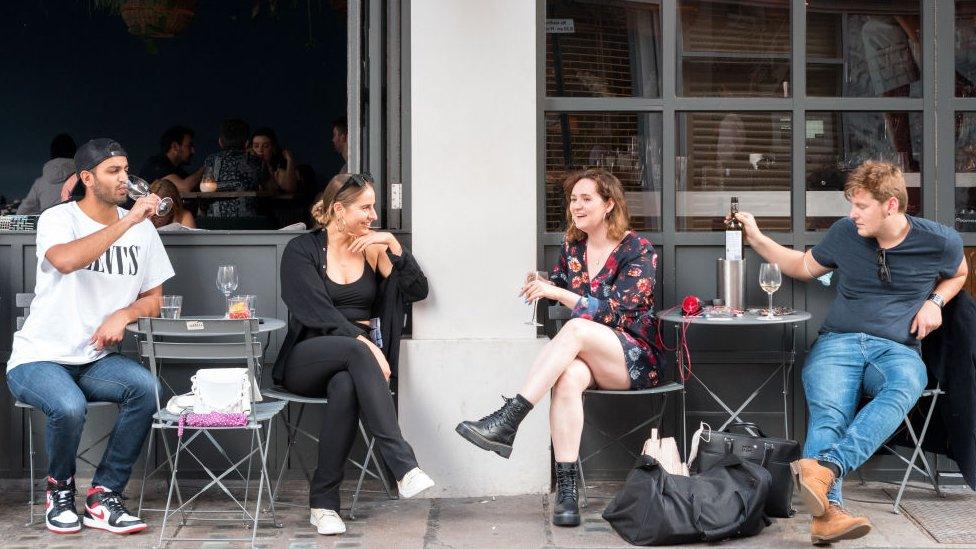People splash out on food and drink for Euro 2020
- Published
- comments

Retail sales in the UK rose between May and June, boosted by demand for food and drink as millions watched the Euro 2020 football tournament.
Sales rose 0.5% month-on-month following a drop in May, official figures showed.
Growth came from "food and drink sales, boosted by football fans across Britain enjoying the Euros", the Office for National Statistics (ONS) said.
June retail sales were 9.5% higher than before the pandemic in February 2020.

The largest contribution to total retail sales growth in June was from food shops where sales rose by 4.2%.
Supermarkets sales had dropped in May as shoppers chose to dine out after some Covid restrictions were lifted in the hospitality sector.
The ONS said: "Feedback from some retailers suggested that sales were positively boosted in June by the start of the Euro 2020 football championship."
Conversely, sales at non-food shops dropped by 1.7% between May and June, with a sharp fall in demand for furniture and clothing.
The ONS said sales of petrol and diesel rose by 2.3% "as people continued to increase their amount of travel". But it said sales of automotive fuel remain 2,1% below pre-pandemic levels.


Coronavirus restrictions easing explained the sharp monthly rise in sales in April; non-essential shops reopened and there was pent-up demand. There was subsequent a drop in May, the month hospitality re-started outdoors so people could eat out again.
With no big changes of restrictions in June, the overall number is less dramatic. But retailers are likely to view these figures as encouraging, especially with June sales more than 9% above pre-virus levels.
Despite a small fall, internet shopping still accounted for comfortably over a quarter of spending. That's still a greater proportion than before the pandemic. Further evidence of how the past 18 months have shifted consumer behaviour, potentially for good.

Total retail sales for June were better than an expected 0.1% fall. Aled Patchett, head of retail and consumer goods at Lloyds Bank, said: "Retailers will be hoping June marked the start of the turnaround they have been hoping for."
He added: "All eyes now are on the impact of the gradual unlocking of society across the UK. On the surface the easing of restrictions and commuters returning back to city centre offices should be good news for the sector, but workers having to self-isolate means many businesses are reporting a shortage of staff just as demand looks likely to peak."
Online sales
People continued to shop online but the amount they spent fell by 4.7% between May and June in all sectors except for clothing.
The overall proportion of retail spending online fell to 26.7% from 28.4% in May, the fourth consecutive monthly fall. "Retailers suggested that the easing of retail restrictions had affected online sales as consumers returned to physical stores," said the ONS.
Related topics
- Published22 July 2021

- Published18 June 2021
